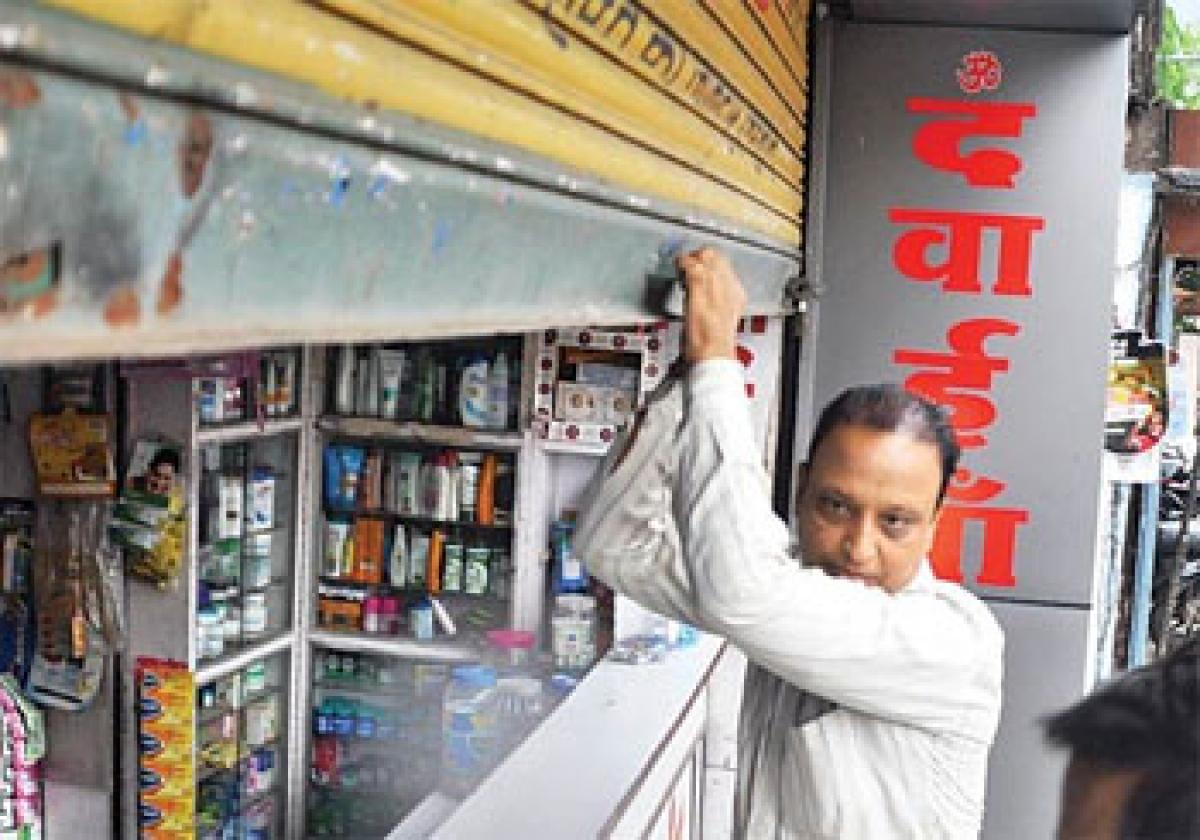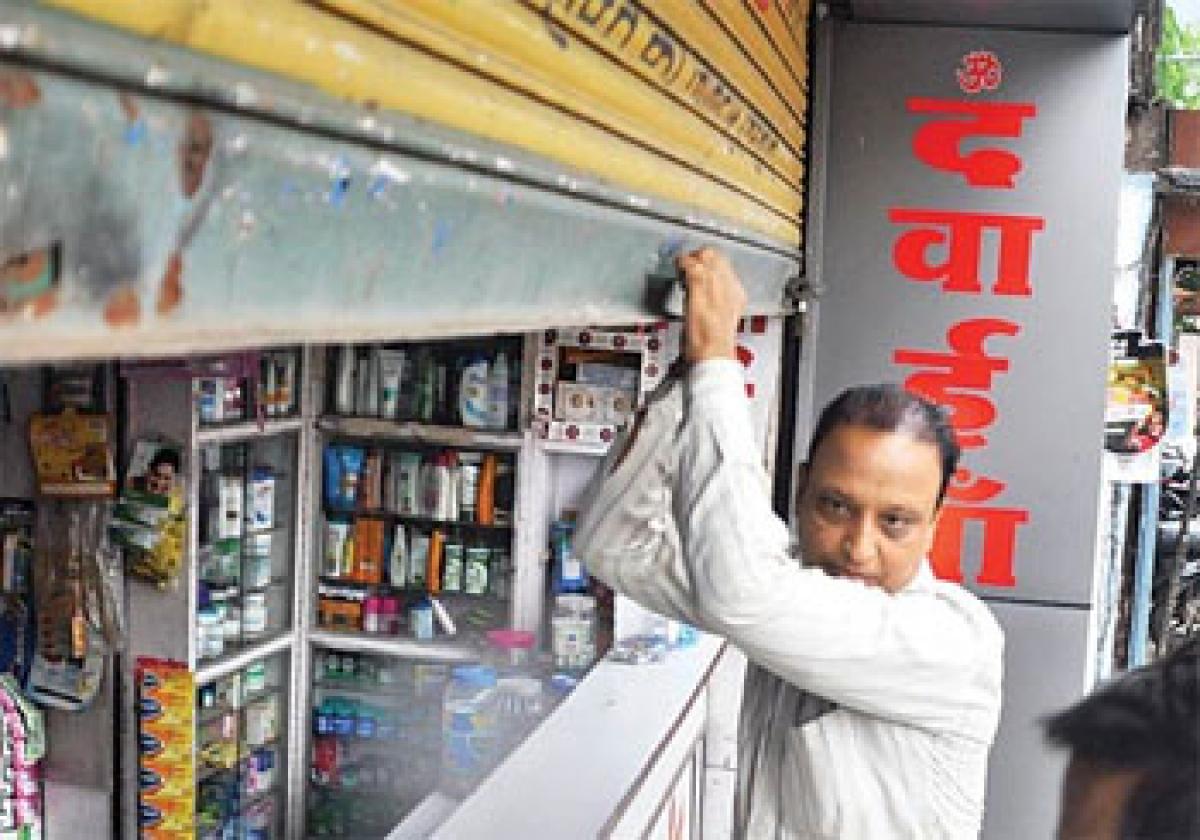Live
- Supreme Court issues notice on PIL seeking directions to integrate legal education, self-defence training into school curriculum
- Bengal school jobs case: Arpita Mukherjee granted bail; new HC Bench to look into Partha Chatterjee's plea
- Working to provide social security for gig and platform workers: Govt
- Bangladesh records 11 dengue deaths, toll rises to 459
- Vocera Raises $500K from Y Combinator to Revolutionize Voice AI Testing and Evaluation
- GQG Partners Refuses to Sell Adani Stocks Despite Bribery Scandal and 26% Loss
- Bihar: Four persons including girl injured in post bypolls violence in Gaya
- Dharmasthala Dharmadhikari Enters Record Book
- BJP to Review By-election Losses in State Meet
- Activist Alleges CPCB Cover-up on Endosulfan in Kasaragod
Just In

The all India chemist strike against online sale of medicines raises complex questions. Though, the government is yet to take a final call,
 The all India chemist strike against online sale of medicines raises complex questions. Though, the government is yet to take a final call,
The all India chemist strike against online sale of medicines raises complex questions. Though, the government is yet to take a final call,
the reports of government mulling over regularisation of e-pharmacy causes obvious heart burn as it adversely affects the business in physical shops, thereby hard hitting the livelihood of lakhs of chemists and druggists across the country.
The argument of chemists is that internet pharmacy is illegal and a violation of the Drugs and Cosmetics Act, 1940, which allows sale of medicines only against prescription by doctors and only by licensed chemists.
But this is only a technical issue. In case the government decides to allow internet pharmacy, the said law would automatically be amended.
In the absence of such an amendment, online sale of medicines is now illegal. But, the chemists are against even the legalised sale of drugs and pharmaceuticals online.
Chemists with physical shops feel online pharmacies also lead to sale of counterfeits, irrational use of medicines and risk of adverse drug reactions or side effects.
But, the online traders argue that when e- commerce is spreading into multitude of products and services, why this sector alone should be excluded.
Suitable regulations can be put in place to prevent any such negative fallout of online pharmacy. For that matter, even the physical shops are also highly unregulated in India.
Many medicines are sold over the counter, though the law and ethics do not permit. Unlike in developed countries, Indian chemist shops continue to indulge in indiscriminate sale and purchase of drugs.
The nexus among drug companies, dealers and corrupt doctors is making drugs highly prohibitive to patients. Over medication and corrupt prescription are the products of such a nexus.
Its advocates argue that online pharmacy can minimise this nexus, if not fully avoid it. Whatever may be the plus and minus in the conflicting arguments,
the fact remains that consumers would be immensely benefited due to steep fall in prices of medicines. The physical shops cannot compete as online traders do not incur any establishment expenditure.
But, the consumer lobbies feel that the retail prices of medicines are many times more than the actual cost of production.The online trading of medicines substantially reduces the cost for the consumers as middlemen would be eliminated.
However, the social implications of internet pharmacy cannot be ruled out as lakhs lose jobs. But, e-commerce of any kind would pose a similar threat to retail trade.
For that matter, the advent of big shopping malls also poses an existential threat to street-end shops. But, the market logic is simple – survival of the fittest. Perhaps,
solution lies in the physical shops adapting themselves to the changing consumer behavior represented by growing online purchases. These shops can also go online. They can move away from the main roads to reduce establishment costs.
But, in a country where online access is still limited, death of a street end chemist shop will make medicines inaccessible to common man. The interests of consumers, chemists, online traders are in mutual conflict.
There are issues of cost, convenience and safe use of drugs. Thus this complex question needs further and wider scrutiny.
Editor: Prof K Nageshwar

© 2024 Hyderabad Media House Limited/The Hans India. All rights reserved. Powered by hocalwire.com







